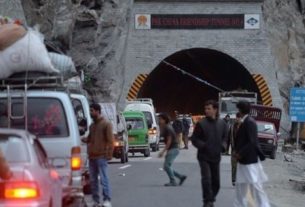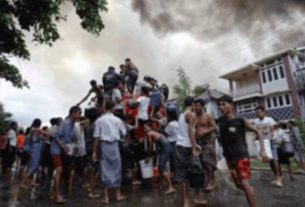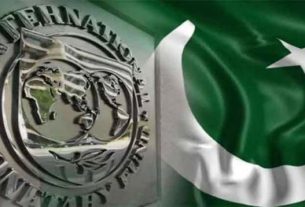We are all set for a weak coalition government and another five years of rigging allegations, conspiracies to overthrow the next government and controversial court judgements, sans discussion on the country’s critical socio-economic situation.
Here we are, 76 years since our independence and 16 years since ‘democracy’ resumed in Pakistan and not a single general election has been conducted without serious rigging allegations. No elected prime minister has yet managed to complete a full term. The general elections on February 8th have further polarised society, increasing uncertainty in the country (who knew that was possible) and significantly damaging what was left of our fragile democracy. The establishment has, once again, severely mishandled the situation, and what was a golden opportunity to heal the nation has been tragically wasted. While all this paints a seriously gloomy picture for Pakistan in the days ahead, there are some interesting observations from this election that may just provide a glimmer of hope going forward.
Before we analyse these factors, it is important to mention that whether you love or hate the man, Imran Khan has pulled off the unthinkable despite the odds stacked vehemently against him and his party – one can only imagine the result had they retained the bat symbol. But what enabled this victory? What led to the Pakistan Tehreek-e-Insaf (PTI) -backed independent candidates outperforming all other parties in the national assembly despite lacking a unified electoral symbol, leadership or mass campaign? And does this mean we are finally on the road to ‘real’ democracy?
To begin with, the results of this election have clearly highlighted the power of social media. The PTI, knowing this is the one medium where the authorities cannot interfere, ran an effective and well-coordinated digital campaign across all constituencies – a prime example of this at play was the social media campaign run by Moonis Elahi and his team (currently in Spain) for his mother’s national assembly seat in Gujrat. The long-held belief amongst many Pakistanis has been that while the PTI is stronger on social media, the PML-N is closer to ‘ground realities’ in constituencies – yet, the fact of the matter is that, social media is the new ground reality.
As per a 2023 report from statistics website Datareportal, social media users in Pakistan stood at approximately 71 million in January 2023, and it is safe to say this figure has increased considerably. As my uncle, who is well-versed in the local politics of our village, put it: there was a time when candidates would approach the numberdar (village head), seek his support and perform a ‘dua-e-khair’, and the candidate was guaranteed the vote of the numberdar and members of his locality. This is no longer the case. Each resident of the village now has his or her own voter identity, thanks to access to social media platforms. The candidate or party’s message must resonate with them to secure their vote. The numberdar can no longer guarantee it.
There were a significant number of people who voted for the PTI, not because of their performance while in government or their manifesto, but because they saw the party as a symbol of resistance against the establishment
Another interesting and positive observation was the manner in which voters rejected, or rather punished, candidates who had a history of switching political loyalties, particularly when their leader or party is in a difficult moment. Such examples include Ghulam Sarwar Khan, Pervez Khattak, Sheikh Rasheed Ahmed, Mehmood Khan and Jahangir Tareen – all of whom lost by sizeable margins to their rivals. This rejection of the ‘electable’ went strongly in PTI’s favour and points to an emerging trend; where previously parties would approach electables for their support, it is now the electables who need the party ticket – a positive for democracy overall.
Perhaps the key factor that went in PTI’s favour was the anti-establishment vote. The blatant persecution of PTI leaders and workers, the senseless judgements against Imran Khan, and finally, the wildly unpopular decision to deprive them of the bat symbol all led to the PTI voter coming out and making sure to cast his or her vote on election day. This was complemented by the Pakistan Muslim League-Nawaz (PML-N) complacency, who were positive they were well on their way to a simple majority with the establishment’s backing.
There were a significant number of people who voted for the PTI, not because of their performance while in government or their manifesto, but because they saw the party as a symbol of resistance against the establishment. This reflects the sentiment of a large portion of the Pakistani electorate; the people are tired of constant, glaring interference by the establishment.
The increase in voter awareness through social media, rejection of ‘electables’ and the increase in anti-establishment voters are all factors that are inter-linked and provide some hope to our fractured democracy. However, these factors alone cannot guarantee the survival and well-being of the system; the establishment and political parties must respond positively to voter sentiment, and unfortunately, from their initial reaction to the results, this does not seem to be the case.
One can only hope our political leaders learn some lessons from the past and understand that the people will not forgive them for disrespecting their mandate
We are all set for a weak coalition government and another five years of the political discourse being dominated by rigging allegations, conspiracies to overthrow the next government and controversial court judgements, with zero discussion surrounding the critical socio-economic problems facing the country.
While Apple moves its iPhone production to India and Bangladesh’s economy goes from strength to strength, we will be busy trying to solve the mystery of how PTI-backed independent candidates went to sleep with a lead of 50,000 votes and woke up to a defeat by 20,000 votes. All this is before we head to the International Monetary Fund (IMF) for yet another bailout.
One can only hope our political leaders learn some lessons from the past and understand that the people will not forgive them for disrespecting their mandate. The PTI, PML-N and the Pakistan Peoples Party (PPP) have all pursued the strategy of trying to win the establishment’s favour at different points in time, and not once has such a strategy resulted in an increase in their popularity – on the contrary it has been detrimental for them in the long term.
The Pakistani electorate is more aware than ever of their democratic rights and the power of their vote – the sooner our key stakeholders understand this, the better our chance of tackling the daunting challenges faced by Pakistan. __Courtesy The Friday Times Pakistan





